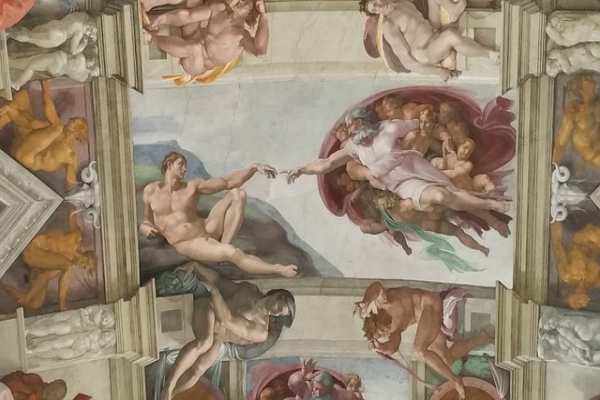On May 14, Beijing Normal University hosted Professor Steven Vanderputten from Ghent University, Belgium, for a lecture titled "Foundation Narratives and Myths of Origins." The presentation examined how societies throughout history have constructed stories about their beginnings and the challenges historians face when studying these narratives across different cultural contexts.
Professor Vanderputten outlined five significant hurdles. A primary concern is the legacy of Eurocentrism, where historical frameworks and periodizations, such as the concept of the "Middle Ages" (roughly 500-1500 CE), originating in Europe, are often inadequately applied to diverse global cultures. Secondly, the sheer diversity of historical sources and languages presents a formidable obstacle. Even with translations, the nuanced meanings of culturally specific concepts can be lost.
The lecture further highlighted the necessity for innovative research methodologies. Professor Vanderputten suggested that the field must move beyond traditional approaches, embracing interdisciplinary collaboration and new technologies to analyze a wide array of evidence. This connects to a fourth challenge: the need for institutional shifts towards fostering global collaborative networks among researchers, rather than relying on a few dominant academic centers. Finally, the talk stressed the importance of a critical examination of terminology and narrative structures used in historical discourse, noting that many fundamental concepts lack universally accepted definitions, potentially impeding clear scholarly communication.
The core of Professor Vanderputten's presentation focused on "foundation narratives"—the stories societies construct about their origins and establishments. He explained that these narratives are a near-universal phenomenon, often appearing in the earliest written records and frequently blending historical elements with mythology. Their primary function, he argued, is to situate a community's beginnings in a distant, often unverifiable past, thereby creating a direct lineage to the present and legitimizing current social structures, institutions, or prevailing ideologies.
The scholarly interpretation of these origin stories has evolved significantly. Professor Vanderputten traced this evolution from earlier periods where such accounts were often taken as direct historical records, through an era of critical dismissal where they were frequently labeled as fabrications. The contemporary approach, developed particularly since the 1990s, tends to analyze these narratives not for their literal truth, but for the socio-historical contexts of their creation, the intentions of their authors, and their functional role within the societies that produced and perpetuated them. This involves understanding concepts like "collective memory" and the "normative function" of such stories in shaping identity.
To illustrate his points, Vanderputten presented an in-depth analysis of Christian foundation narratives, particularly from medieval European monasteries. He explained how the Book of Genesis served as the ultimate foundation narrative for Christian communities, providing not just an account of creation but a framework for understanding humanity's relationship with God and the natural order. The professor noted that throughout Christian history, believers have found profound meaning in these scriptures beyond mere historical documentation.
Vanderputten then examined how early Christian communities and medieval monasteries deliberately constructed their own foundation stories to establish direct lineages to Christ and the apostles. The Abbey of Cluny, for instance, portrayed itself as the sole inheritor of true Christian tradition, claiming to be the only institution preserving authentic faith during spiritually troubled times. Similarly, many religious houses crafted narratives connecting their origins to miraculous divine interventions or the works of venerated saints, thereby sanctifying their existence and practices.
The speaker emphasized that these Christian narratives, while sometimes historically questionable, served essential spiritual and communal functions. They provided believers with a sacred identity, established moral frameworks, and created meaningful connections between past, present, and future generations of the faithful. Vanderputten suggested that understanding these narratives within their devotional context offers insights into how Christian communities have historically understood their place in God's divine plan, regardless of modern historical assessments of factual accuracy.
In conclusion, Professor Vanderputten asserted that foundation narratives are best understood as socially constructed tools that help communities articulate identity and make sense of their world. He advocated for a global, comparative study of these narratives, moving beyond assessments of factual accuracy to analyze their deeper meanings and societal functions.












